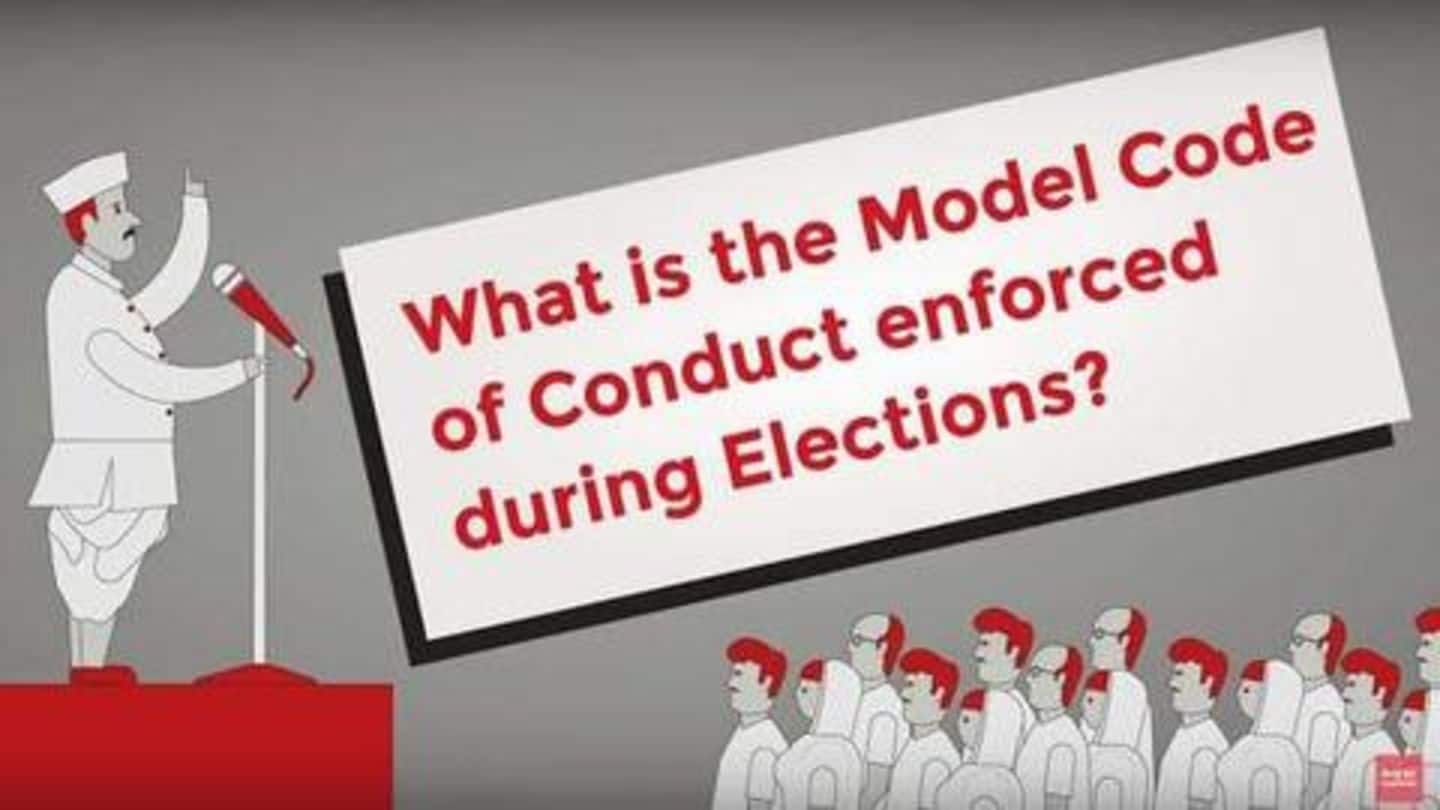
#Elections2019: Everything to know about Model Code of Conduct (MCC)
What's the story
This year, India, the world's largest democracy, goes to polls to elect the 17th Lok Sabha. The General Election will be held from 11 April-19 May.
The Election Commission, on 10 March, announced the dates for upcoming elections and imposed the Model Code of Conduct (MCC), a set of guidelines for conducting free and fair elections.
Here's everything about the Model Code of Conduct.
About
What is the Election Model Code of Conduct?
The Model Code of Conduct is simply a set of instructions for the political parties and candidates contesting the polls about the dos and don'ts before and during the elections.
The MCC gives instructions and guidelines on political campaigning, general conduct, meetings, etc.; it kicks in as soon as election dates are announced and remains in force till the entire poll process is completed.
Information
The MCC broadly consists of 8 provisions
The Model Code of Conduct consists of provisions to deal with eight aspects, according to PRS India. The eight provisions include general conduct, meetings, processions, polling day, polling booths, observers, the party in power, and election manifestos.
#1
The MCC prohibits using caste, communal feelings to get votes
The MCC, under General Conduct, limits criticism of parties only to policies, programs, past record and work and prohibits using caste and communal feelings to get votes.
Criticism of candidates based on unverified reports and bribing or intimidating voters among other things are also not allowed.
Parties must inform the local police authorities of any meetings for adequate security arrangements to be made.
#2
EC-appointed observers should be informed of problems in the election
Parties must ensure their processions don't clash with other party processions; carrying/burning of other candidates' effigies isn't allowed.
On the polling day, authorized party workers at polling booths should have identity badges without party name, symbol, or candidate's name. Only voters and those with valid EC passes are allowed into polling booths.
Candidates should inform EC-appointed observers of any problems in conduction of election.
#3
Restrictions under MCC to regulate conduct of party in power
In 1979, the MCC brought in restrictions to regulate the ruling party's conduct.
Ministers aren't allowed to combine official visits and election work or use official machinery for election work.
The ruling party must not advertise using public funds or use official media for increasing its winning chances.
Ministers/authorities must not announce grants or make promises. The ruling party shouldn't monopolize public spaces/rest houses.
#4
The MCC provisions on the election manifestos
Under the MCC, as per guidelines on election manifestos incorporated in 2013, political parties are prohibited from making any promises that influence voters.
"In the interest of transparency, level playing field and credibility of promises, it is expected that manifestos also reflect the rationale for the promises and broadly indicate the ways and means to meet the financial requirements for it," states the MCC.